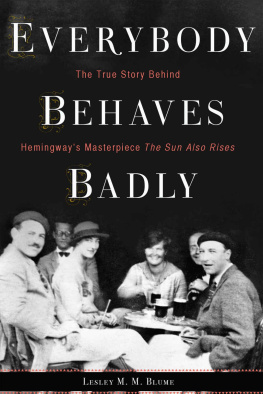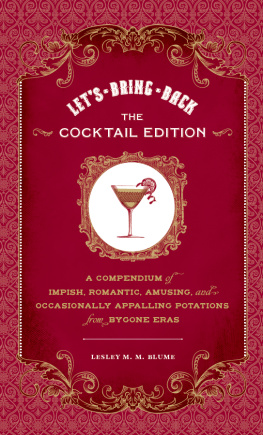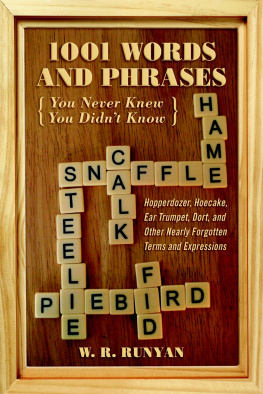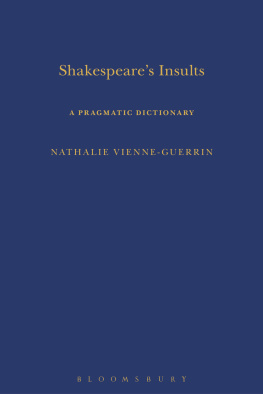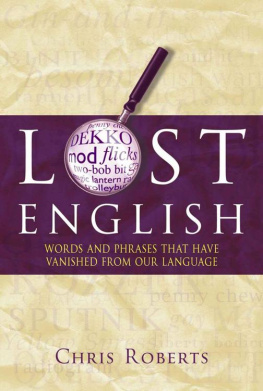Copyright 2013 by Lesley M. M. Blume.
All rights reserved. No part of this book may be reproduced in any form without written permission from the publisher.
ISBN 978-1-4521-2431-5
Library of Congress Cataloging-in-Publication Data available under ISBN 978-1-4521-0530-7.
Chronicle Books LLC
680 Second Street
San Francisco, California 94107
WWW.CHRONICLEBOOKS.COM
INTRODUCTION
AS WE ALL KNOW, NOTHING FALLS OUT OF FASHION LIKE FASHION. History has relegated thousands of adornments to the ash bin, from togas to bustles to turbans. Yet, somehow these glad rags always manage to stage comebacks, sneaking into our modern wardrobes in various guises. Once-fashionable words, on the other hand, have far less comeback savvy. Once a word or phrase is regarded as pass, it usually stays on the Dont list forever, with little hope for redemption. It seems dreadfully unfair, but as our grandparents used to say, Thats just the way the cookie crumbles.
Over the decades, centuries, and millennia, thousands of entertaining, poignant, mischievous, and brilliant expressions have been birthed by cultural vogues and just as quickly fallen victim to them as well. Some of the rejects are far more nuanced and descriptive than the modern words and idioms conjured up to take their placesand in many cases, no satisfying substitute has been offered up at all.
Clearly, then, we must take action. Introducing Lets Bring Back: The Lost Language Edition , whose mission is to revive and preserve hundreds of perfectly delightful words, phrases, idioms, and other literary flourishes from bygone eras. The restoration of these terms is not merely a quirky, history-minded pastime; rather, its a necessary act of intervention to help us disadvantaged modern creatures express ourselves cleverly and with flair once again.
Some of the featured words have been obsolete for hundreds of years; others were discarded as recently as the 1990s, but are still as revival-worthy as their ancient counterparts. Many of the following expressions arent fully extinct, but can be considered an endangered species of charming, grandmotherly sayings (and dont forget that grandmotherswhile they may look sweet and nonjudgmentaloften have sharper tongues than anyone else in the room). The words and phrases in all of these categories have been included in the book as a plea for their ongoing use by future generations.
An important caveat: Lets Bring Back: The Lost Language Edition is certainly not meant to be an all-inclusive dictionary of historical slang. There are many such tomes available, some of which are several thousand pages thick and heavy as cement blocks; consult one of these fine catalogues for an exhaustive etymological history. Consult this book, on the other hand, for a curated list of outmoded-yet-splendid slang words that are still relevantand often highly amusingwhen dropped into conversation or correspondence today.
The following pages celebrate a sampling of terms selected through a years-long literary scavenger hunt. Among the countless sources culled: Old Hollywood pictures, childrens storybooks, nineteenth-century muckraking newspaper articles, beatnik play scripts, the Bible, and chirpy mid-century frozen food advertisements. The wisecracking Jean Harlow in the 1933 film Bombshell was as juicy a source of colorful vintage vocabulary as the comedies and tragedies of William Shakespeare. Some of the included phrases are as old (and lusty) as Cleopatra; many of them are rooted in our agrarian past. Although most of us today may be far removed from the daily routines of earth-tilling and chicken-farming, we can still appreciate the inherent wisdom and applicability of these old-world countryside sayings.
Thumbing through historical slang and idiom dictionaries, it is astonishing to see how many thousands of centuries-old expressions are still in regular use today. Lets Bring Back: The Lost Language Edition concentrates on lost or now-underused words, but research for this book showed that other lucky wordsfor whatever reasonhave enjoyed remarkable staying power. As we casually utter these phrases, we often know nothing about their inception and evolution; we have no concept of how they made their way into our personal vocabularies in the first place. Who can remember the first time they were instructed not to cry over spilled milk or told about the school of hard knocks? These phrases just seem to have always surrounded us as naturally as the air we breathe. But they were taught to our parents by their parents and so on down the line, sometimes as far back as a dozen generations, and often boast surprising origins.
Its also fascinating to discover how many different meanings a single word can accrue over the years. For example, most of us likely associate the word groovy with 1960s flower children and hippies; but had you hollered out the word a century earlier, your contemporaries would have thought that you were talking about a sardine. While were on the subject of marine life, consider the word oyster. To us, it signifies a mollusk and a culinary delicacy; yet in the 1800s, an oyster was also a jolly good guy. Before that , however, it meant a gob of phlegm. Some phrases are so relentlessly indecisive that their various definitions or connotations entirely contradict each other: up a gum tree, for example, can either mean trapped in a dangerous situation or out of dangers reach, depending on the context (not to mention the attitude of the person uttering the expression).
From a certain point of view, however, in the world of words, the more things change, the more they stay the same. Perusing the vocabularies of generations past, you realize that the same types of people and situations existed in ancient Rome or Elizabethan England that surface in contemporary New York City or Los Angelesor Beaver Creek, Montana, for that matter. Human vocabulary may have changed, but human behavior has not. People got out of the wrong side of the bed in Caesars day; the world has always been riddled with knaves, seek-sorrows, gadabouts, whipsters, and dandiprats. Amorous couples have firkytoodled for years, and ribs (wives) have given curtain lectures (chastisements issued to world-weary husbands at bedtime) for millennia. Revisiting the vernaculars of bygone eraseven the forgotten parts of those vernacularscan provide a sense of continuity, even camaraderie, with our ancestors, whom we resemble in so many ways.
So, without further ado, lets settle in and rediscover some wonderful words from the past. From mollycoddles to rapscallion, from batty-fanging to tippybobs, from attic salt to ziff, there are many pleasing old expressions ready to be whispered, shouted, hissed, purred, sputtered, and exclaimed once again.
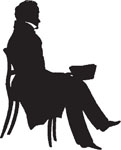
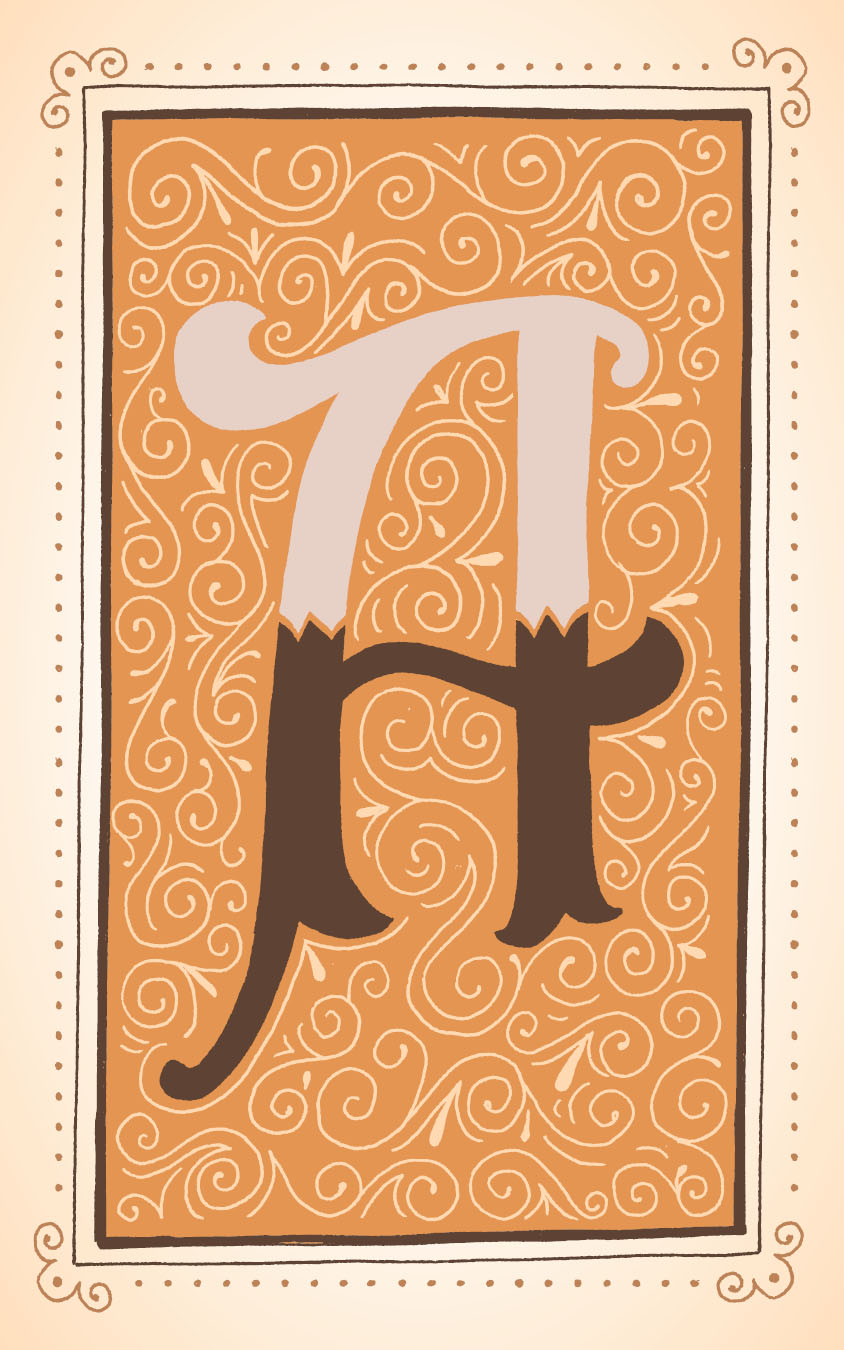
A BIRD IN THE HAND IS WORTH TWO IN THE BUSH
Meaning that its better to be content with what you have than to risk losing everything in pursuit of a bigger opportunity. One source says that this proverb has its roots in medieval falconry, where a bird (i.e., a falcon) in the hand was a valuable asset, and certainly worth more than two in the bush (the prey).
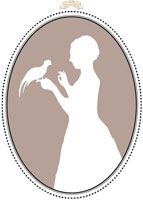
Next page

